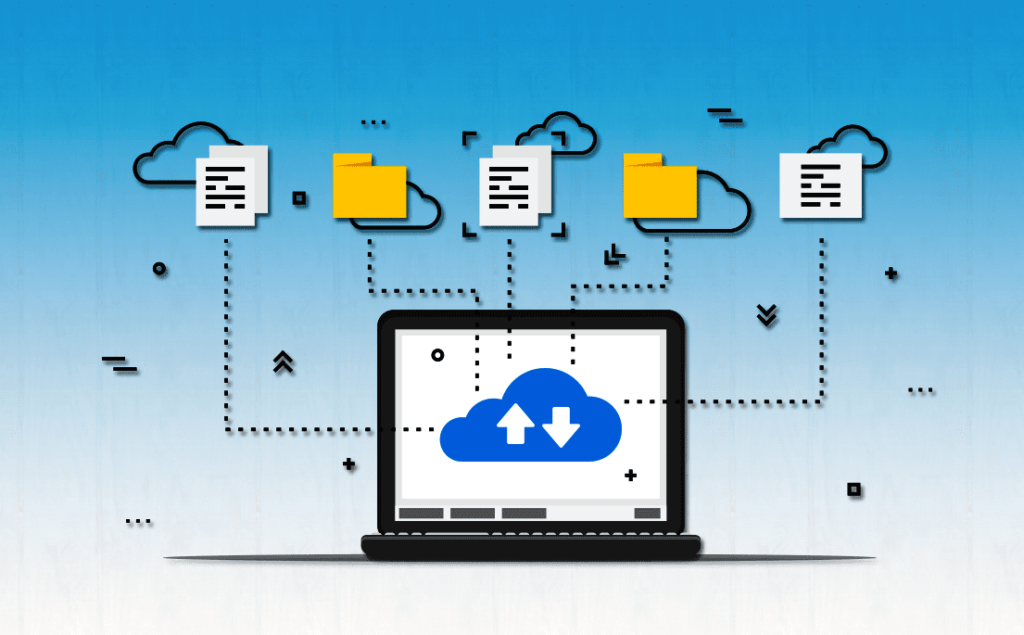Introduction
In today’s digital age, data is the backbone of any business. From customer details and financial records to operational data and intellectual property, the importance of data cannot be overstated. However, with this dependency comes the significant risk of data loss due to factors like human error, cyberattacks, and hardware failures. This is where data backup services become crucial. These services ensure that your data is securely stored and can be recovered in the event of an unforeseen disaster, thus safeguarding your business from potentially catastrophic losses.

Understanding Data Backup
Data backup is the process of copying and archiving data so that it can be restored in case of loss. There are several methods of data backup:
- Full Backup: This involves copying all data every time a backup is made. While thorough, it’s time-consuming and requires substantial storage.
- Incremental Backup: Only the data that has changed since the last backup is saved, making it faster and more storage-efficient, though it can complicate the recovery process.
- Differential Backup: It backs up all data that has changed since the last full backup, offering a middle ground between full and incremental backups.
Businesses can choose between local backups (storing data on physical devices on-site) and cloud backups (storing data on remote servers). Cloud backups are increasingly popular due to their flexibility and security, providing protection against local disasters.
Why Data Backup Services Are Essential
The risks of data loss are multifaceted:
- Human Error: Even with the best protocols, mistakes happen, such as accidental deletions or overwriting important files.
- Cyberattacks: Ransomware and other malicious attacks can compromise your data, sometimes rendering it inaccessible without paying a ransom.
- Hardware Failures: Hard drives and other storage media can fail unexpectedly, potentially causing irretrievable data loss.
The financial impact of data loss can be severe, from the cost of recovery efforts to lost business opportunities and regulatory fines for non-compliance with data protection laws. Many industries, including healthcare and finance, are subject to stringent data protection regulations, making reliable backup services not just beneficial but legally necessary.
Types of Data Backup Services
There are various types of data backup services tailored to different business needs:
- On-Premises Backup: Involves storing data backups on physical devices within the company’s premises. This offers direct control but can be vulnerable to physical threats like fire or theft.
- Cloud-Based Backup: Data is stored on remote servers managed by a third-party provider, offering greater flexibility, security, and offsite protection against local disasters.
- Hybrid Backup Solutions: Combines on-premises and cloud backups, providing both quick local recovery options and offsite protection.
- Managed Backup Services: Outsourced backup services where a provider handles everything from backup scheduling to data recovery. This is ideal for businesses lacking the resources to manage backups in-house.
Choosing the Right Data Backup Service
Selecting the right data backup service involves assessing your business needs and evaluating potential providers based on several key factors:
- Business Size and Data Volume: The size of your business and the amount of data you handle will influence your backup needs. Larger businesses with more data may require more robust solutions.
- Recovery Time Objective (RTO): How quickly you need to recover data in the event of a loss. Your backup solution should meet these time requirements to minimize downtime.
- Security: Ensure that the provider offers strong encryption and complies with industry standards to protect your data.
- Reliability and Support: A reliable provider with good customer support is crucial, especially during a data recovery process.
Best Practices for Data Backup
Implementing best practices in your backup strategy can significantly enhance your data protection:
- Regular Backups: Schedule frequent backups, preferably daily or even more frequently, depending on how critical your data is.
- Offsite Storage: Ensure that at least one copy of your backup is stored offsite, whether in the cloud or a remote physical location, to protect against local disasters.
- Multiple Backup Copies: Follow the 3-2-1 rule: three copies of your data, stored on two different media, with one copy offsite. This redundancy ensures that your data is protected in multiple scenarios.
- Regular Testing: Regularly test your backups by performing recovery drills. This ensures that your backups are functioning correctly and can be restored when needed.
Conclusion
In the digital age, where data drives business success, protecting this vital asset is non-negotiable. Data backup services provide a lifeline, ensuring that your business can recover swiftly from any data loss incident. By choosing the right backup solution and following best practices, you can safeguard your business against the myriad risks that threaten your data.
Investing in reliable data backup services is not just about protecting your data—it’s about securing the future of your business.

